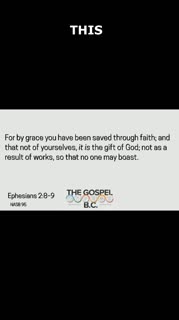God's Unconditional Covenant: Faith, Grace, and Promise
Summary
In today's gathering, we explored the profound nature of God's covenant with Abraham, as depicted in Genesis 15. This covenant is a powerful testament to God's faithfulness and grace, which often seems too good to be true. Just as advertisements can leave us skeptical, God's promises might initially appear to have a catch. However, unlike human promises that often fall short, God's covenant with Abraham was unconditional and solely dependent on His faithfulness, not on Abraham's actions. This covenant foreshadows the gospel, highlighting that salvation is a gift of grace through faith, not something we earn through our deeds.
We delved into the story of Abraham, who was promised descendants as numerous as the stars, land to possess, and a blessing for the world. Despite his doubts and missteps, God remained faithful. The covenant ceremony, where God alone passed through the divided animals, symbolized that He would bear the full responsibility of the promise. This act prefigures the ultimate fulfillment of God's promise through Jesus Christ, who embodies the complete manifestation of God's grace and faithfulness.
Abraham's story is a reminder that God's promises are not contingent on our perfection. Just as Abraham, Isaac, and Jacob were flawed yet recipients of God's grace, we too are invited into this covenant through faith in Christ. We are adopted into Abraham's family, inheriting the promise of salvation and the call to share this blessing with the world. The gospel is indeed good news, offering us a relationship with God not based on our works but on His unwavering grace.
Key Takeaways:
1. God's Promises Are Unconditional: The covenant with Abraham illustrates that God's promises are not dependent on human actions but on His faithfulness. This covenant, where God alone passed through the animals, signifies His commitment to fulfill His promises, foreshadowing the grace we receive through Christ. [38:44]
2. Faith Over Works: Abraham's righteousness was credited to him because of his faith, not his works. This principle is echoed in the New Testament, emphasizing that our salvation is a gift of grace through faith, not something we can earn. [45:52]
3. God's Faithfulness Despite Human Failure: Despite Abraham, Isaac, and Jacob's failures, God remained faithful to His covenant. This demonstrates that God's grace is not nullified by our shortcomings, offering us hope and assurance in His promises. [44:04]
4. The Gospel's Foreshadowing in the Old Testament: The covenant with Abraham prefigures the gospel, showing that God's plan for salvation was set in motion long before Christ's arrival. This continuity underscores the depth and reliability of God's redemptive plan. [47:12]
5. Our Role in God's Promise: As spiritual descendants of Abraham, we are called to share the blessing of salvation with the world. This mission is a continuation of God's promise to Abraham, inviting us to participate in His redemptive work. [49:34]
Youtube Chapters:
- [0:00] - Welcome
- [23:11] - Introduction and Humor
- [25:24] - The Deceptive Nature of Advertisements
- [26:34] - The Gospel BC Series
- [28:39] - Prayer and Scripture Introduction
- [29:25] - The Gospel Framework
- [31:06] - God's Promise to Abraham
- [32:15] - The Covenant Ceremony
- [33:36] - Abraham's Doubts and God's Assurance
- [35:16] - Counting the Stars
- [36:28] - The Covenant's Seriousness
- [38:44] - God's Sole Responsibility
- [39:34] - Fire as God's Presence
- [41:14] - Abraham's Imperfections
- [42:16] - Isaac and Jacob's Stories
- [44:04] - God's Faithfulness Through Generations
- [45:52] - Salvation by Grace Through Faith
- [47:12] - The Gospel's Fulfillment in Christ
- [49:34] - Our Inheritance and Mission
- [50:23] - Invitation to Believe
- [51:49] - Closing Prayer
Study Guide
Bible Study Discussion Guide
Bible Reading:
- Genesis 15:1-21
- Romans 4:1-5
- Galatians 3:6-9
---
Observation Questions:
1. What specific promises did God make to Abraham in Genesis 15, and how did Abraham respond to these promises? [31:06]
2. Describe the covenant ceremony between God and Abraham. What was unique about how this covenant was established? [38:44]
3. How does the sermon illustrate the concept of God's faithfulness despite human failure, using the examples of Abraham, Isaac, and Jacob? [44:04]
4. What role does fire play in the representation of God's presence during the covenant ceremony, and what are some other biblical instances where fire symbolizes God's presence? [39:34]
---
Interpretation Questions:
1. How does the unconditional nature of God's covenant with Abraham foreshadow the gospel message of salvation by grace through faith? [47:12]
2. In what ways does the sermon suggest that God's promises are not dependent on human actions but solely on His faithfulness? How does this understanding impact one's view of salvation? [45:52]
3. How does the story of Abraham challenge the common belief that God's favor must be earned through good works? [50:23]
4. What does the sermon imply about the continuity of God's redemptive plan from the Old Testament to the New Testament? [48:32]
---
Application Questions:
1. Reflect on a time when you doubted God's promises in your life. How can Abraham's story encourage you to trust in God's faithfulness despite your doubts? [35:16]
2. The sermon highlights that God's promises are not contingent on our perfection. How can this truth change the way you approach your relationship with God, especially when you feel inadequate? [44:04]
3. In what ways can you actively participate in sharing the blessing of salvation with others, as spiritual descendants of Abraham? Identify one specific action you can take this week. [49:34]
4. Consider the areas in your life where you might be striving to earn God's favor. How can you shift your mindset to embrace the grace that is freely given through faith? [50:23]
5. How does understanding the seriousness of God's covenant with Abraham influence your view of the commitments you make in your own life? What steps can you take to ensure your commitments reflect God's faithfulness? [36:28]
6. The sermon mentions that God's grace is not nullified by our shortcomings. How can this assurance help you deal with past mistakes and move forward in faith? [47:44]
7. How can you cultivate a deeper sense of gratitude for the inheritance and mission you have received as part of God's promise to Abraham? What practical steps can you take to live out this mission daily? [49:34]
Devotional
Day 1: God's Unwavering Commitment
God's covenant with Abraham in Genesis 15 is a profound demonstration of His unwavering commitment to His promises. Unlike human agreements, which often rely on mutual obligations, God's promise to Abraham was unconditional. In the covenant ceremony, God alone passed through the divided animals, symbolizing that He would bear the full responsibility for fulfilling His promise. This act foreshadows the grace we receive through Christ, emphasizing that God's promises are not contingent on our actions but solely on His faithfulness. This assurance invites us to trust in God's steadfast nature, knowing that His promises are reliable and true. [38:44]
Genesis 15:17-18 (ESV): "When the sun had gone down and it was dark, behold, a smoking fire pot and a flaming torch passed between these pieces. On that day the Lord made a covenant with Abram, saying, 'To your offspring I give this land, from the river of Egypt to the great river, the river Euphrates.'"
Reflection: Consider a promise from God that you find hard to believe. How can you remind yourself of His faithfulness today, trusting that He will fulfill it in His time?
Day 2: Faith as the Foundation
Abraham's story illustrates that righteousness is credited through faith, not works. Despite his imperfections, Abraham believed God's promises, and it was counted to him as righteousness. This principle is echoed in the New Testament, where salvation is described as a gift of grace through faith. It is not something we can earn through our deeds but is freely given by God. This understanding challenges us to shift our focus from striving to earn God's favor to resting in the assurance of His grace. By embracing faith as the foundation of our relationship with God, we experience the freedom and joy that comes from His unmerited favor. [45:52]
Romans 4:3-5 (ESV): "For what does the Scripture say? 'Abraham believed God, and it was counted to him as righteousness.' Now to the one who works, his wages are not counted as a gift but as his due. And to the one who does not work but believes in him who justifies the ungodly, his faith is counted as righteousness."
Reflection: In what areas of your life are you relying on your own efforts rather than faith? How can you begin to trust God more fully in these areas today?
Day 3: Grace Amidst Imperfection
The stories of Abraham, Isaac, and Jacob reveal that God's faithfulness is not nullified by human failure. Despite their flaws and missteps, God remained true to His covenant, demonstrating that His grace is greater than our shortcomings. This truth offers hope and assurance that God's promises are not dependent on our perfection. Instead, we are invited to rely on His grace, knowing that He is faithful even when we fall short. This understanding encourages us to approach God with humility and gratitude, confident in His unwavering love and mercy. [44:04]
2 Timothy 2:13 (ESV): "If we are faithless, he remains faithful—for he cannot deny himself."
Reflection: Reflect on a recent failure or mistake. How can you embrace God's grace and faithfulness in this situation, trusting that He is still at work in your life?
Day 4: The Gospel's Ancient Roots
The covenant with Abraham prefigures the gospel, revealing that God's plan for salvation was set in motion long before Christ's arrival. This continuity underscores the depth and reliability of God's redemptive plan, showing that His promises are woven throughout history. By recognizing the gospel's ancient roots, we gain a deeper appreciation for the consistency and intentionality of God's work in the world. This understanding invites us to trust in the unfolding of His plan, knowing that He is sovereign and His purposes will prevail. [47:12]
Galatians 3:8-9 (ESV): "And the Scripture, foreseeing that God would justify the Gentiles by faith, preached the gospel beforehand to Abraham, saying, 'In you shall all the nations be blessed.' So then, those who are of faith are blessed along with Abraham, the man of faith."
Reflection: How does understanding the gospel's roots in the Old Testament deepen your trust in God's plan for your life? What steps can you take to align yourself with His purposes today?
Day 5: Our Role in God's Promise
As spiritual descendants of Abraham, we are called to share the blessing of salvation with the world. This mission is a continuation of God's promise to Abraham, inviting us to participate in His redemptive work. By embracing our role in God's promise, we become conduits of His grace and love, extending the hope of the gospel to those around us. This calling challenges us to live intentionally, seeking opportunities to share the good news and embody the love of Christ in our daily interactions. [49:34]
1 Peter 2:9 (ESV): "But you are a chosen race, a royal priesthood, a holy nation, a people for his own possession, that you may proclaim the excellencies of him who called you out of darkness into his marvelous light."
Reflection: Who in your life needs to hear the good news of God's grace? How can you intentionally share His love and hope with them this week?
Quotes
Here are the selected quotes from the sermon transcript:
1. "Good morning, church. It's good to be here with you this morning. And I want to invite you to stand. We are going to sing praises to the one who deserves praise. Our God is good, and he has won us a victory at the cross of Jesus Christ. And we get to celebrate and receive and have the blessing of salvation in Jesus Christ. So we're going to sing these songs today to declare these truths that we have life in Christ, and let's give him praise for it." [00:50] (38 seconds)
2. "Well, we are in a series called The Gospel BC, and we're looking at how there's foreshadowings of the gospel. In the Old Testament, foreshadowings of the salvation that we have in Jesus Christ found in the Hebrew Bible or the Old Testament. Something? Okay, sorry. Yeah, he was holding up his hand. I was like, did I miss something? So The Gospel BC. Today, what we are looking at is the covenant that God made with Abraham and how it demonstrates God's faithfulness and his grace. And on the surface, it really sounded too good to be true because it put God squarely in the place of doing the heavy lifting, and Abraham just simply got to believe." [27:00] (48 seconds)
3. "So we're going to dive into that today and look at how God's covenant, God's gospel delivers on his promises well beyond what we can ask or imagine, all right? We as humans often can over-promise and under-deliver, and we can try and deceive people into doing things that maybe they don't want to do, like advertisements that try and get you hooked on something, right? But God is not that way. He is gracious. He is faithful. And he keeps his promises. So we're going to look at today." [28:04] (39 seconds)
4. "So before we dive into Genesis chapter 15, I wanna remind you about what the gospel is with our 10 second sermon version of the gospel. It'll be on the screen. So the gospel is the announcement that Jesus' life, death, and resurrection have brought about salvation for Israel and the world. It is the good news about God's victory over sin and death. That's kind of the framework that we're working with, right? There's a lot that can be explored about the gospel. We explored a little bit last week how the gospel is a power for salvation, how it is the announcement of the kingdom of God through Jesus Christ being established here and now and forevermore." [29:28] (44 seconds)
5. "God is trying to tell Abraham, look, your descendants, they'll outnumber the stars. Don't worry, believe, have faith that I will do this for you, right? And he does, Abraham believes and it's counted to him as righteousness. God promised Abraham descendants. He promised him land to possess and he promised him a blessing to be shared for the whole world. And he fully intended to keep this promise. And Abraham asked this question, how can I know that this is gonna happen, God? How can I know for sure that you are gonna do what you said you're gonna do? Well, they make a covenant." [35:47] (42 seconds)
6. "A covenant is a strong contract, if you will, right? And so he gets these animals, he cuts them in half and he puts them opposite to each other. Does anyone think that sounds really strange? It sounds strange. Imagine if your neighbor got some farm animals, cut them in half, put them in their yard and started walking between them. You'd probably call the police, right? Like, it sounds weird. And that's okay. That's okay if it sounds weird, okay? Because the Bible's old and there's weird things in the Bible. And this is one of those that just sounds strange. What do we do with this? What is this meant to signify? Well, this whole process of cutting animals in half, separating them was a way for them to make a covenant." [36:41] (51 seconds)
7. "Let it be that if I break this contract, this promise that I'm making to this other person, this other party, let it be that I'd be like these animals if I break it, right? This is a serious thing, right? It's gruesome, it's very serious and it's meant to signify the severity and the depth of this covenant, right? So God telling Abraham, we're gonna make this serious covenant here. Cut the animals, lay them out and we're gonna do this. And this is how you know, this is how you know." [38:11] (34 seconds)
8. "God is faithful and gracious and carried on his covenant and his promise, despite Abraham, Isaac, and Jacob making seriously terrible choices at times. Abraham didn't pass through the animals. God did. One of the passages we read last week in Ephesians chapter two in verses eight and nine, it describes the nature of our salvation in Christ Jesus. It says this, for by grace you have been saved through faith and that not of yourself, it is the gift of God, not as a result of work so that no one may boast." [44:36] (43 seconds)
9. "This describes the nature of our salvation and it really describes the reality of Abraham's covenant promise with God. Abraham didn't earn anything. He simply believed God and was counted righteous. He had faith that God would do it and he was made righteous because of it. Romans chapter four says, for what then shall we say that Abraham, our forefather, according to the flesh has found? For if Abraham was justified, by works, he has something to boast about, but not before God. For what does the scripture say? Abraham believed God and it was credited to him as righteousness." [45:19] (47 seconds)
10. "In Christ, the church, the people of God, those who would say yes and amen to the lordship and kingship of Jesus Christ of Nazareth. We are the continuation of God's promise to Abraham. We've not only been adopted as sons and daughters in Abraham's family through faith in Christ, but we are sons and daughters of the, the most high God. Sons and daughters of the father in heaven, of Christ our King. We are promised an inheritance in the new creation, the new heaven and the new earth. When Christ comes again to reestablish things and make things right again, once and for all." [48:44] (45 seconds)










